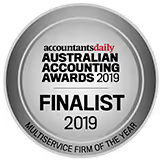
Services
Our professional services are designed to support business growth and set you up for long-term success.

EcommerceFranchiseHealthcareHospitalityPrimary ProductionProfessional ServicesProperty DevelopersRetailTrades

Industries
We provide tailored financial and business advice to professionals across a range of industries.

Our Locations

Locations
With experts across Australia and virtual consultations available, we can assist you wherever you’re based.



%20(1).png)
%20(1).png)
%20160x160.avif)


%20(1).png)








.png)




.png)
.png)


